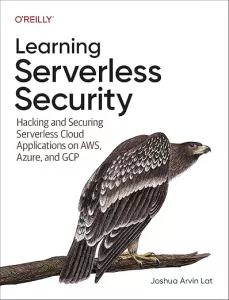Last updated on November 19, 2025
Azure Container Instances Cheat Sheet
- Run containers without managing servers.
- For event-driven applications, quickly deploy from your container development pipelines, run data processing, and build jobs.
- Azure Container Instances is a regional service.
Features
- Containers have less overhead than VMs and can be deployed consistently.
- All the dependencies for an application are included in the container image.
- Applications running in containers can be deployed easily to multiple operating systems and hardware platforms.
- Select an image source using Quickstart images, Azure Container Registry, and Docker Hub.
- Create a container image only when you need it and process data on-demand.
- You can choose to always restart the container regardless of how it stopped, to only restart if it failed, to exit successfully, or to never restart.
- Enables you to set a command to be executed first when running the container.
- Resources can be tagged with values that you define, to help you organize and identify them.
- By default, Azure Container Instances are stateless.
- You can’t deploy an image from an on-premises registry to ACI.
- Confidential Containers GA – hardware-based isolation using AMD SEV-SNP (2024).
- Larger container groups support (8 GB memory, 4 vCPUs) (2024).
- Azure Files identity-based authentication with Microsoft Entra ID now GA (2024)
Storage
- You can mount Azure Files shares in your ACI for persistent storage.
- To mount an Azure file share as a volume in Azure Container Instances, you need: Storage account name, Share name, and Storage account key.
- Mount Azure Files using Microsoft Entra ID authentication (2024)
Networking
- Choose between three networking options: Public, Private, and None.
- Private IP is not yet available for Windows Containers.
- None IP containers (logs) can still be accessed using the CLI.
- DNS name label: <tutorialsdojo>.<region>.azurecontainer.io
Security
- Deploy Azure WAF in front of critical web applications hosted in ACI for additional inspection of incoming traffic.
- Use Azure Key Vault to safeguard encryption keys and secrets for containerized applications.
- Confidential Containers provide hardware-level isolation using AMD SEV-SNP (2024).
- Enhanced container group isolation with dedicated physical hosts (2024).
Pricing
- You pay based on what you need and get billed by the second.
- The assigned public IP addresses to your container group are billed.
- You are billed for each GB and vCPU your container group consumes.
Want to learn more about Azure? Watch the official Microsoft Azure YouTube channel’s video series called Azure Tips and Tricks.
Validate Your Knowledge
Question 1
Question Type: Single choice
You manage a logistics company that uses Azure file shares to store critical data. The company uses Microsoft Entra ID for identity-based authentication. Employees from remote branches need secure access to these file shares. To meet operational needs, the following conditions must be fulfilled:
-
Hybrid user identities must be authenticated using Microsoft Entra ID.
-
End users need access to file shares over the public internet.
-
No line-of-sight to on-premises domain controllers is required at remote branches.
Which authentication method should you implement for Azure Files?
- Enable Microsoft Entra Kerberos authentication for hybrid identities.
- Use Microsoft Entra ID with Azure Files OAuth over REST.
- Use Kerberos authentication over SMB for Linux clients using Microsoft Entra Domain Services.
- Use NTLM-based access controls for hybrid accounts.
For more Azure practice exam questions with detailed explanations, check out the Tutorials Dojo Portal:
Azure Container Instances Cheat Sheet Resources:
https://docs.microsoft.com/en-us/azure/container-instances/container-instances-overview
https://azure.microsoft.com/en-us/services/container-instances/#overview
https://azure.microsoft.com/en-us/updates/?product=container-instances




















